This O&G Magazine feature sees Dr Nisha Khot in conversation with women’s health leaders in a broad range of leadership positions. We hope you find this an interesting and inspiring read. Join the conversation on Twitter #CelebratingLeadership @RANZCOG @Nishaobgyn
Dr Michael Carrette
FRANZCOG (ret)
This issue of O&G Magazine comes to you at a time when we are witnessing an unprecedented (how we have come to hate this word!) invasion of government into the personal lives and healthcare choices of Americans. In Australia, we have watched with horror as events unfold in USA. The ‘justification’ provided by those who made the decision to overturn Roe vs Wade was that abortion is a dangerous procedure and people seeking abortion needed to be ‘protected’. Experience around the world has unequivocally demonstrated that restricting access to abortion only reduces the number of safe (ie. not dangerous) abortions. We are already hearing evidence of the dangerous situation many women now find themselves in directly because of restricted access to abortion.
Closer to home, new laws to decriminalise abortion in South Australia have only just come into effect in July 2022. In WA, abortion is still regulated by the Criminal Code. While abortion is available in all states and territories, we cannot deny the existence of a postcode lottery for abortion rights and access.
It seemed entirely appropriate to feature Dr Michael Carrette in this Leaders in Focus. Dr Carrette was the first doctor to use mifepristone for abortion in Australia. For 18 years, he was one of very few doctors providing surgical abortions in Cairns. When he retired in 2016, women from Far North Queensland (FNQ) had to travel thousands of kilometres to access surgical abortions. I am grateful to Prof Caroline de Costa for introducing me to Dr Carrette. I hope readers will be as fascinated as I was by Dr Carrette’s life as a musician and singer before he came to medicine and specifically, O&G. Although Mike has retired, he continues to explore his various passions including building his own harpsichords and flying his ultralight aircrafts.
Could you please tell me about your early years? Who were your early influences?
I was brought up in England by my mother whose Irish husband had disappeared shortly after I was born. She was 40 years old and was caring for me and her elderly parents. She worked as a teacher to make ends meet. My mother, two grandparents and I lived in a very modest house and clearly expectations were on me from an early age to improve the social and financial situation.
My mother made me learn to play the piano. So far so conventional, but it was the one thing that set me on my life and my career. By the age of 8, I was fairly musical and had an attractive treble voice. My mother got me an interview at the choir school of Canterbury Cathedral and I was accepted. What followed was far and away the happiest time of my life. For five years we choirboys lived in the cathedral precincts and lived and breathed history and music. I sang on television, on stage and in operas.
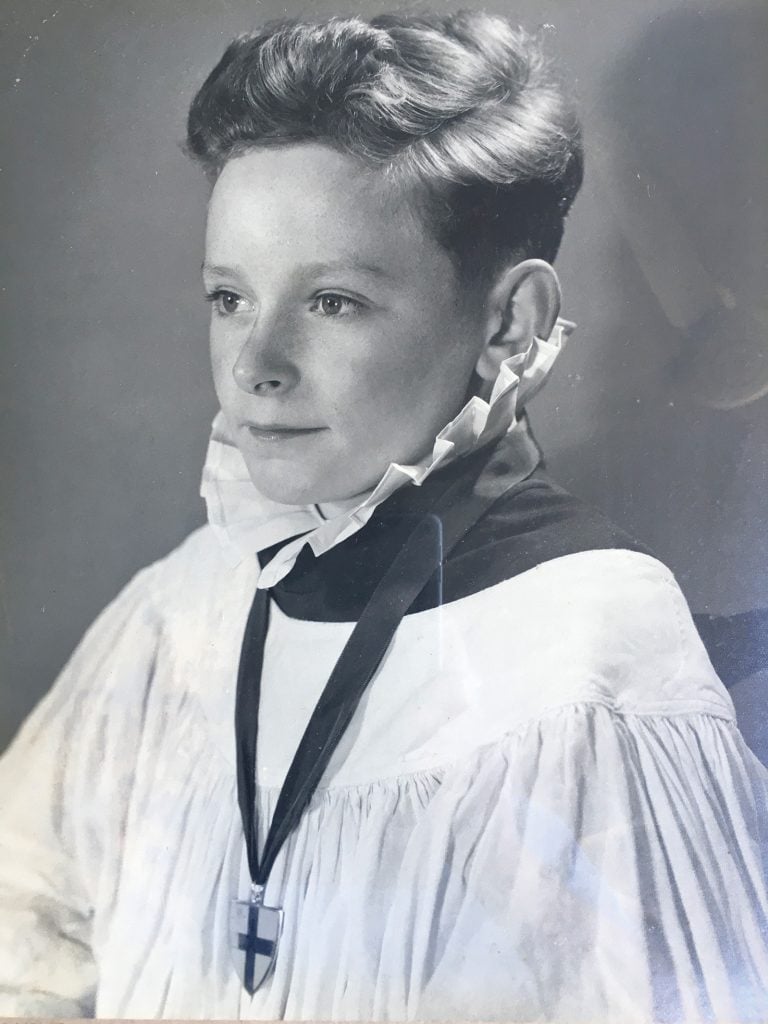
Dr Michael Carrette as a choir boy
At the age of 13 it was time to go to ‘high school’. My family’s middle-class background required that I go to a ‘good’ school. There was no money for such a thing, but the school we fancied had a few scholarships ready to be awarded for various things. With my musical background the deal was I would have reduced school fees if I played the organ in chapel, sang in the choir, played in the orchestra and in the cadet force band. I really did not enjoy my high school years.
At 18, I faced the next problem. I had enough ‘A-levels’ to go to university, but no hope of a good medical school and no money to pay for it. It turned out I had a godfather who had been a celebrated surgeon at Barts in his day. I think there might have been a person on an interview committee who was of a musical bent. It also turned out that the local government authority where we lived had a scheme to give financial support to those seeking higher education but were of limited means. So pulling various strings, and involving much luck, I enrolled at Charing Cross Hospital in 1962.
At this point I feel compelled to mention Doris. My mother had a good friend at teachers training college called Doris. Doris had a partner called May. Doris told my mother that since she was destined never to have children, the next best thing was to help someone else’s child through life. My journey through schools and university was largely thanks to Doris. When my mother told me about this, (me being young, innocent and living in an unenlightened age) I always assumed that Doris has some terrible disease that prevented her having children. The truth occurred to me much later and when it did, it was a revelation.
The next episode was nearly the end of everything. After the first two years at Charing Cross, we had a pre-clinical exam. I failed, mostly because I had discovered rugby football, beer and nurses. My grants were cut off. Fortunately, I was allowed to retake the exams after six months, but I had to work all day on the books and all evening as a bartender. But I made it the second time. Never have I been so mugged by reality and come so close to failing. I still dream about it and awake stressed.
What prompted you to choose a career in O&G?
I chose O&G largely because to the young Dr Carrette, it was such a mystery. It also seemed that there could be no finer life for a man than sustaining women through that most important expression of being a human being. It is the only specialty that combines medicine, surgery and psychology. Childbirth is so exhilarating and rewarding. I have had a very full career that has brought me much joy.
What advice do you have for junior doctors aspiring to a career in O&G?
The life of an O&G specialist will allow you to participate in the joys of your patients while earning their lasting affection and gratitude.
I still experience this in my retirement; my former patients recognise me, while my children and grandchildren report being told ‘your dad delivered me’ on regular occasions.
How did you come to be involved in reproductive healthcare and abortion care?
When I first arrived in Cairns I became involved with Cairns Family Planning, before it was incorporated into Brisbane. This was a time when many chemists refused to stock the OCP and when a woman could not have a ‘tubal ligation’ without her husband’s consent being witnessed by the hospital superintendent. We did a lot of ‘extended sterilisations’ at the Catholic hospital. It was called a hysterectomy. Being a lifetime atheist, I always considered religion an enemy and treated it as such.
I started to perform surgical abortions in Cairns in 1998, which was as soon as there existed a local facility which allowed this. At times I scarcely had time for much else. A short time ago I analysed my patients’ data and it turns out I have performed over 9,000 such procedures!
What were the defining moments of your career?
My career highlight was being the first to use mifepristone in Australia. My involvement with Queensland abortion law reform is another defining moment in my career. For both of these my thanks are largely due to Prof Caroline de Costa. Caroline had an ambition to be the first to introduce medical abortion into Australia. She had the academic know-how, the drive, the contacts, the plans. What she lacked were the patients, since hers was an academic post. I had a busy abortion practice ,the only one in North Queensland, and thus what started as a partnership of necessity became a team and a lasting friendship.
What is your reaction to the news from USA with regards to Roe vs Wade? Should we in Australia be concerned?
Roe vs Wade is too terrible to think about. It will be a long learning exercise for the people of USA where I can see disaster as the SCOTUS lurches right while the people steadily march left.
We here will, I hope, never have a similar problem. We do not have a ‘cult’ mixing radical religion, anti-gay rights, anti-abortion and guns. However, this should not mean that we let our guard down. Abortion rights in Australia were hard won after many years of steady campaigning. There is much that we have not achieved as yet in ensuring equitable access to abortion across regional, rural and remote Australia.
Over the course of your working life, what are some of the big changes you have noticed in O&G?
The most obvious change is the gender balance. I worked with Doctors Bob, Patrick, another Bob, Tom, Roger, Paul, Desmond, and Michael. Only later did Dr Liz McKenna arrive followed by a host of other female O&Gs. To be frank, this change is a mixed blessing. There is a perception that the ladies are the more gentle and caring. I can’t comment on loving and caring, but have observed many registrars (and colleagues) operating and can tell you men are mostly careful, meticulous, efficient surgeons and this, to me, shows that they care about their patients.
The other problem is obvious and inescapable. It is not hard for me to observe that the most loved and trusted obstetricians are those who have devoted their life to obstetrics, who have been on call 24/7 for year after year in the same practice with very little leave. This is not a gender-based criticism but rather a reflection of the 24/7 nature of obstetrics.
What role did RANZCOG play in your life? What has been your involvement with College activities?
I did some work for the College creating learning resources for trainees on the subject of abortion. The reach of the College is tenuous in FNQ, but when the hospital lawyers were threatening, the law ambiguous and medical indemnity providers being no help at all, the College was unequivocally on our side and very reassuring it was too. I do think the College could be more involved with women’s rights on a broader front by advocating for a federal approach to abortion rights and action on domestic violence.
If you had the ability to, what would you change?
Looking back, I would not change anything. I have been terribly lucky in my association with wonderful colleagues. Music (Mozart and Bach amongst others) has been ever-present. I have had the opportunity to make a difference in many ways. The boy with very few prospects who grew up in England has come a long way thanks to the generosity of the likes of Doris who faced discrimination and marginalisation in their lives.
What has kept you busy post-retirement?
I am enjoying living close to my family, making trips to the cottage in Tasmania and listening to a lot of music. I am determined to create a herb garden outside the back and this has kept me happily occupied in retirement.
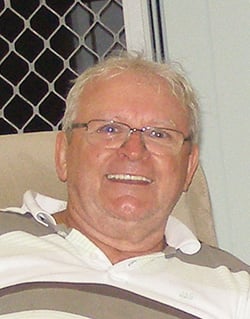
Dr Michael Carrette
I hope you have enjoyed reading this interview with Dr Carette. My aim with this column is to feature women’s healthcare professionals who can inspire readers, especially the next generation of O&Gs. Your feedback and suggestions are very welcome. If you have any recommendations for colleagues or mentors you would like to see featured, please get in touch. I look forward to hearing your thoughts on the current format of this feature and any ideas for improvement.


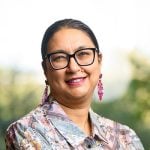
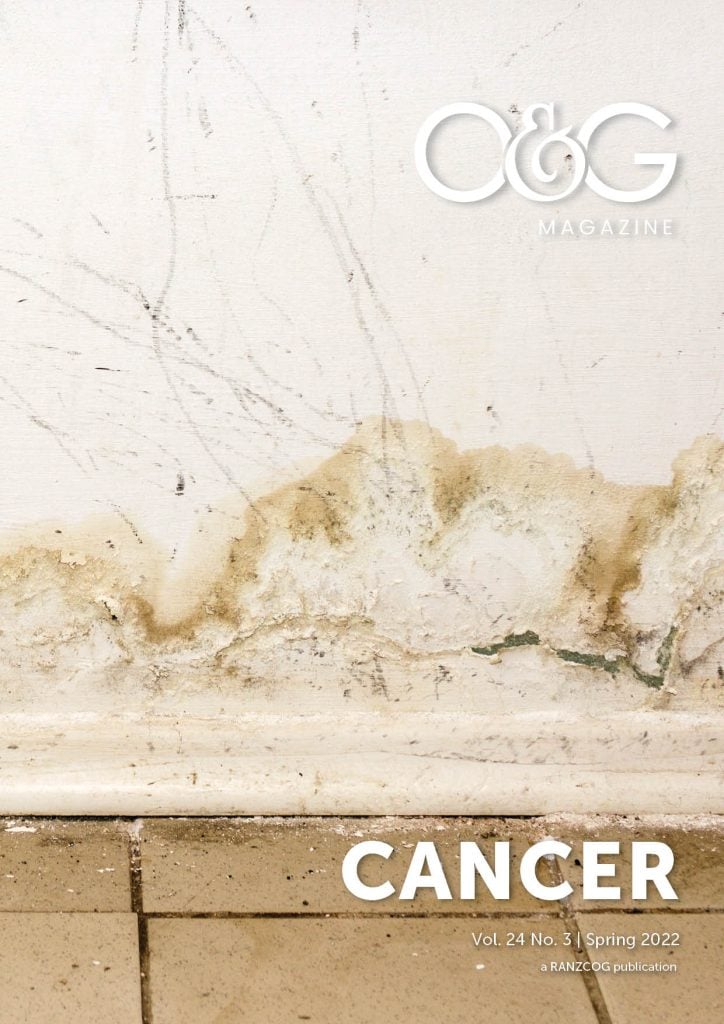
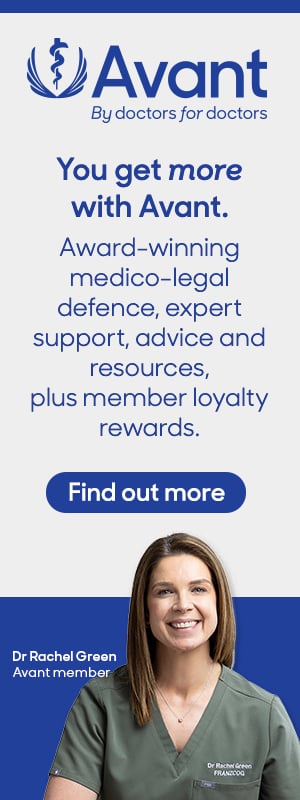

Leave a Reply